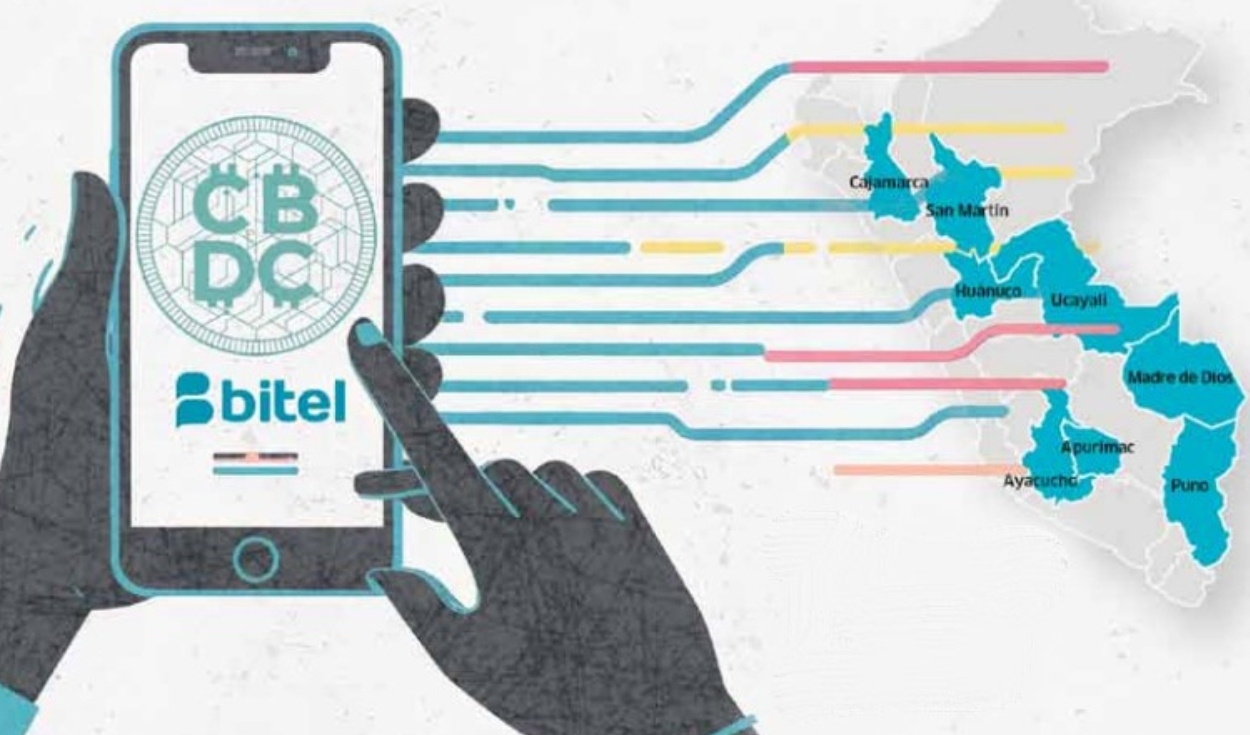
As he anticipated The Republic Last April, the Central Reserve Bank of Peru (BCRP) completed its selection process for the operator of the CBDC pilot, the first sovereign digital money project in Peru, whose ultimate goal is to democratize digital payments in our country, without the need for the user to be connected to the Internet or associated with a financial institution.
Thus, the company Viettel Peru SAC, which operates in national territory under the trade name of Bitelwill be responsible for establishing a strategy similar to the one it has been carrying out in its native Vietnam, where it is also developing the Mobile Money pilot, together with its competitors VNPT and Mobifone for the period 2021-2025, during the next 12 months of the pilot.
What will it be like in Peru? Bitel must still communicate to the highest issuing body the mechanism chosen to cover the 50% gap of unbanked customersexplains Álvaro Castro Lora, partner at Damma Legal Advisors.
There are previous experiences in the world that include payment with the cell phone chip, SMS messaging or through the charging cable. digital money It is a liability of the issuing institution; that is, the funds that back it are in a specific account at the BCRP.
“The specific technical solution will depend on the proposal made by Bitel. There are many ways, but the fact is that we do not know what the proposal is, which will not necessarily be adopted by the BCRP as the standard. It could also not convince and call for another pilot project,” says the specialist.
Bitel was selected after demonstrating that, through a telecommunications network regulated and supervised by a Peruvian entity — in this case, Osiptel — it can reach customers in areas with low banking penetration and limited internet access.
Target areas are considered to be departments that, according to data from the 2022 National Household Survey, have less than 45% of their population banked: San Martin, Ayacucho, Huanuco, Apurimac, Ucayali, Cajamarca, Puno and Madre de Dios.
It is worth noting that, to date, three nations have launched their own CBDC: Bahamas, Nigeria and Jamaica. Additionally, 35 digital money pilots are being carried out in various countries around the world.
“It is the reaction of the central banks of the world to the implicit claim that money holders have in the face of the appearance of the cryptocurrencies and all the limitations of the traditional system,” says Castro.
But it’s not cryptocurrency
However, the lawyer emphasizes that the Bi tel plan will not work as a cryptocurrencyUnlike these, the resources will be kept in an account of the highest issuing entity, which guarantees the funds of all users.
“The stablecoins They maintain guarantees to stabilize their value, but there have been cases of failures that have affected users,” according to BCRP.
So far, the arrival of the digital wallets, such as Yape or Plinhad streamlined the payment system in the market, but there was still a hurdle for users who did not have their money in a bank or who had low-end cell phones.
According to figures from the National Institute of Statistics and Informatics (INEI)only 58% of Peruvians were banked in 2023. Although this is higher than the 43% recorded before the pandemic, the challenge is still great in areas of the country where access to traditional banking is difficult.
This becomes a problem if we take into account that, according to the Ministry of Economy and Finance (MEF), 9 out of 10 payments are still made with cash. This is in an environment where 41% of adults do not reach a minimum level of financial education, according to data from the SBS.
Digital payments: a window opens to Peru
● Once the digital money account is opened, the client will be able to make purchases of goods and services, as well as make deposits and withdrawals. Transfers between accounts can even be made.
● It will not generate inflation. The digital money issued is 100% backed by funds in an account at the BCRP, so it would not affect the money supply or generate inflationary pressures.
● Bitel may provide incentives to promote user affiliation. These do not include, under any circumstances, payment of interest on the funds.
● The implementation of Mobile Money in Vietnam has been a success: according to data from the Ministry of Information and Communications (MIC) of that country, the number of clients reached more than 8.8 million in May, 72% of them located in rural, mountainous and remote areas.
Source: Larepublica
Alia is a professional author and journalist, working at 247 news agency. She writes on various topics from economy news to general interest pieces, providing readers with relevant and informative content. With years of experience, she brings a unique perspective and in-depth analysis to her work.











